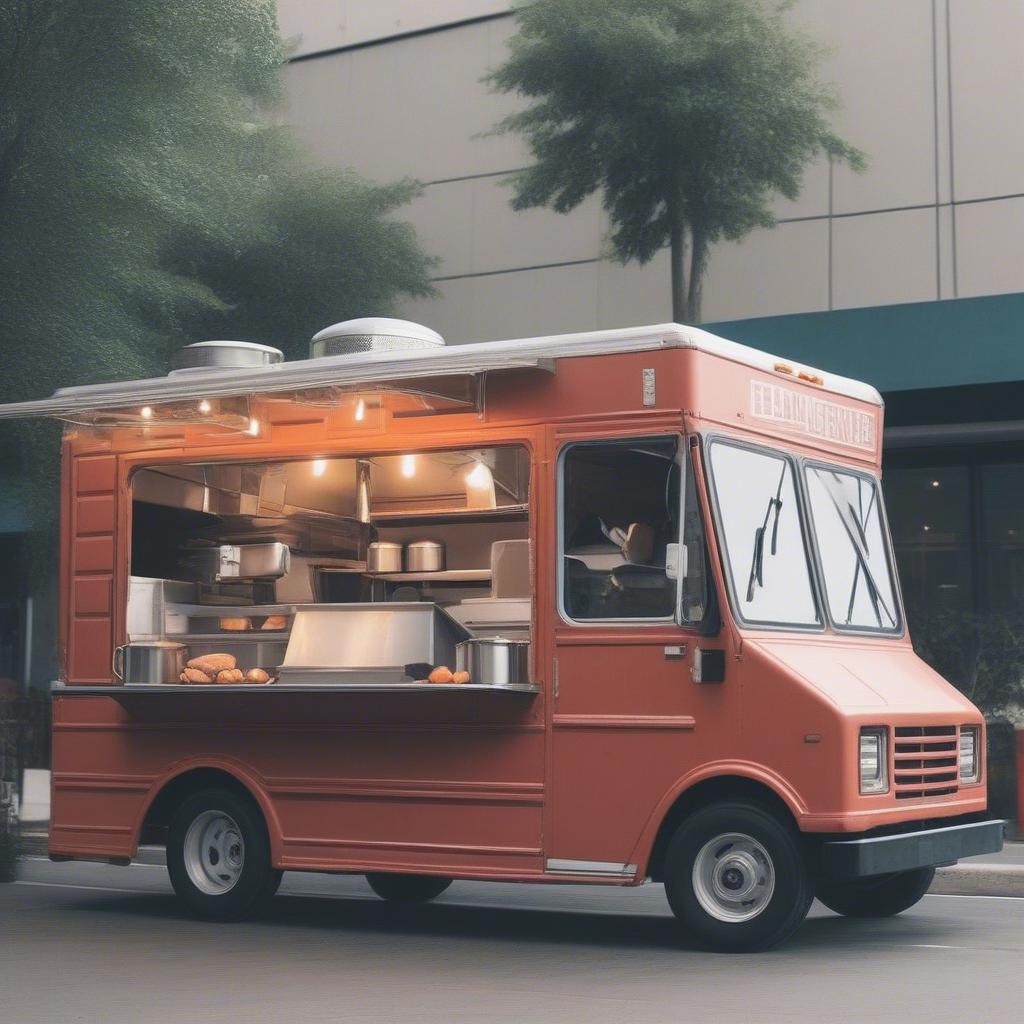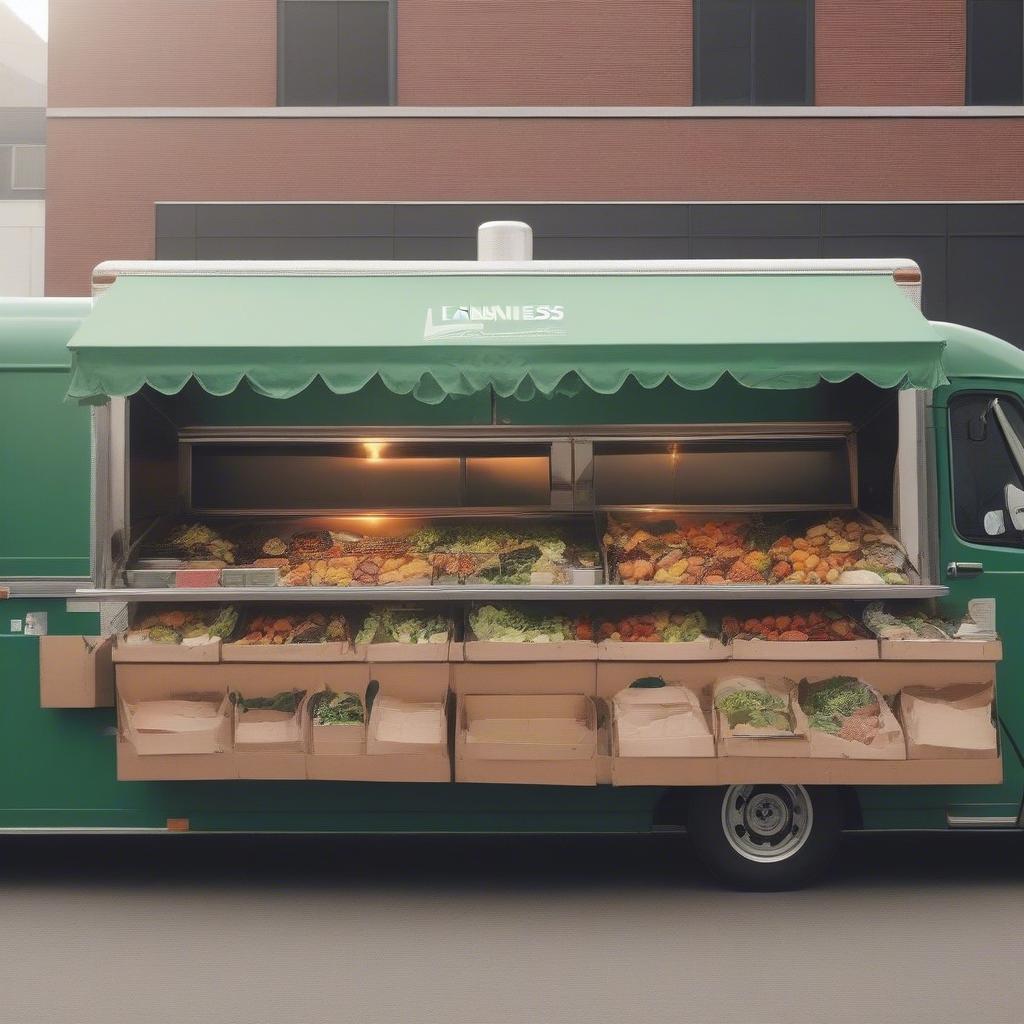
The food truck industry is a vibrant, fast-paced, and often challenging world. Your menu might be mouthwatering, your location prime, but without a solid team, your wheels might just spin in the mud. Employee retention isn’t just a nice-to-have; it’s the fuel that keeps your food truck moving forward. High turnover can lead to lost productivity, increased training costs, and a dip in overall morale. This article will delve into proven food truck tips and practical strategies to help you not only find great employees but, more importantly, keep them around. We’ll explore everything from fair compensation to creating a positive work environment, arming you with the knowledge and tools to build a loyal and thriving team.
Why is Employee Retention So Crucial for Your Food Truck?
Before we jump into how to improve retention, let’s understand why it matters so much. In the food truck world, consistency and quality rely heavily on your team. Here’s why keeping good employees is a game-changer:
Reduced Turnover Costs
- Hiring & Training Expenses: Constantly hiring and training new employees is costly, time-consuming, and draining. Think about the time spent on job postings, interviews, and onboarding, not to mention the financial investment in training materials and initial salaries.
- Productivity Loss: When a team member leaves, there’s a dip in productivity. It takes time for a new hire to reach the same level of efficiency, impacting your output and potentially your customers’ experience.
- Morale Impact: A high turnover rate can create a sense of instability and uncertainty among your remaining team members, leading to lower morale and even further turnover.
Consistent Quality and Service
- Established Workflows: Experienced employees know the ins and outs of your food truck operations. They understand your processes, recipes, and customer service protocols, ensuring consistency in what you offer.
- Building Relationships: Long-term employees often build rapport with your regular customers, creating a sense of community and loyalty around your brand. That personal connection is something new hires can’t replicate immediately.
- Minimizing Mistakes: Seasoned staff makes fewer mistakes, leading to less waste and a better overall experience for both the employees and the customers.
Building a Strong Brand and Culture
- Team Cohesion: A team that works well together is more efficient, productive, and, most importantly, creates a positive atmosphere that customers can feel.
- Brand Ambassadors: Happy and loyal employees become ambassadors for your food truck, spreading positive word-of-mouth and enhancing your brand reputation.
- Reduced Stress for Owners: Knowing you have a reliable and dedicated team allows you, the owner, to focus on the bigger picture – business development, menu innovation, and customer engagement.
Understanding Employee Needs: What Matters Most?
Before you can effectively retain your employees, you need to understand what motivates and engages them. While pay is certainly a factor, it’s not the only thing. Consider these key needs:
Fair Compensation and Benefits
- Competitive Wages: Research what other food trucks in your area are paying, and aim to be at least competitive, if not slightly above. Remember, talented individuals often have options, and fair pay is a starting point.
- Clear Pay Structures: Ensure your employees understand how they are being paid (hourly, tips, or salary). Transparency fosters trust and avoids misunderstandings.
- Benefits Beyond Pay: Consider offering additional benefits, even if they seem small, to show you care. This could include meal discounts, flexible scheduling, or even help with transportation.
A Positive and Supportive Work Environment
- Respect and Appreciation: Treat your employees with respect and make them feel valued. A simple “thank you” can go a long way.
- Open Communication: Encourage open communication and create a space where employees feel comfortable sharing feedback and ideas.
- Team Building Activities: Organize occasional team-building activities to help your staff bond and feel like they’re part of a community.
Opportunities for Growth and Development
- Cross-Training: Provide opportunities for employees to learn different roles within the food truck, keeping their skills fresh and their days interesting.
- Skill Development: Offer training opportunities that help your team develop new skills, whether it’s learning new cooking techniques or improving customer service.
- Career Advancement: Create pathways for employees to grow within your business. Even if there isn’t a clear management track yet, demonstrate that you recognize and appreciate their contributions.
Practical Strategies for Employee Retention
Now, let’s dive into the specific strategies you can implement to improve employee retention at your food truck.
Strategic Hiring Practices
- Define Clear Job Descriptions: Start by crafting detailed and clear job descriptions that outline responsibilities, expectations, and qualifications. This helps attract the right candidates from the beginning.
- Realistic Expectations: Be honest about the demands of the job. The food truck world can be fast-paced and physically demanding, so it’s important to set realistic expectations from the outset.
- Use Multiple Channels: Use a variety of platforms to advertise your openings (online job boards, social media, local community groups, etc.) to reach a wider pool of potential candidates.
- Value Soft Skills: Beyond technical skills, look for candidates who demonstrate positive attitudes, teamwork abilities, and a strong work ethic.
- Behavioral Interview Questions: Instead of asking generic questions, use behavioral interview questions to assess how candidates have handled past challenges and work situations.
- Offer a Trial Shift: Consider offering a short trial shift to potential employees. This allows both you and the candidate to see if the job is a good fit.
- Onboarding Process: Implement a structured onboarding process to help new employees feel welcomed and understand your operations. Provide them with the necessary tools, training, and support to succeed. This is a major key in hiring tips.
Compensation and Benefits: Go Beyond the Basics
- Performance-Based Bonuses: Introduce a bonus system that rewards employees for achieving specific goals, such as exceeding sales targets or maintaining high customer satisfaction scores.
- Tip Pooling: If you have multiple employees, consider a tip pooling system to ensure everyone receives a fair share of customer gratuities.
- Paid Time Off: Even if it’s a limited amount, offering paid time off shows your employees that you value their well-being and need for rest.
- Meal Benefits: Offer discounted or free meals during shifts, which can be a significant benefit for employees working long hours.
- Flexible Scheduling: Be willing to offer some flexibility in scheduling when possible. This can help attract and retain employees who need to balance work with other commitments.
- Health Benefits: If your budget allows, explore offering health benefits or contributing to health insurance costs for your employees. This can be a huge incentive and make you a more attractive employer.
- Commuting Assistance: Consider offering transportation benefits, like a bus pass or gas allowance, if your location is challenging to reach.
- Employee Referral Programs: Encourage current employees to refer potential hires by offering incentives for successful referrals.
Creating a Culture of Respect and Support
- Active Listening: Practice active listening when interacting with your employees. Make them feel heard and valued.
- Regular Feedback: Provide constructive and regular feedback on your team’s performance. Be specific and focus on improvement rather than criticism.
- Positive Reinforcement: Acknowledge and appreciate your team’s efforts. Highlight successes publicly and celebrate their achievements.
- Conflict Resolution: Address conflicts quickly and fairly, ensuring that everyone feels safe and heard in your workplace.
- Empowerment: Give your employees the autonomy to make decisions and take ownership of their roles.
- Open Door Policy: Create an environment where employees feel comfortable approaching you with questions, concerns, or suggestions.
- Regular Check-Ins: Implement regular one-on-one check-ins with each employee to discuss their progress, needs, and any challenges they are facing.
- Transparency: Be transparent about business goals, challenges, and future plans. When they know how the business is doing, they are more likely to buy in.
Investing in Development and Growth
- Skill-Based Training: Offer specialized training in areas like food preparation, customer service, or point-of-sale (POS) system usage.
- Mentorship Programs: Pair new hires with experienced employees who can provide guidance and support.
- Leadership Opportunities: Identify employees with leadership potential and provide them with opportunities to develop those skills.
- Ongoing Learning: Encourage employees to learn new skills and adapt to new technologies.
- Internal Promotions: When possible, promote from within and demonstrate clear career growth paths.
- Support Further Education: If applicable and relevant, support employees who want to pursue certifications or further education in the food industry.
Utilizing Templates and Resources for Efficiency
Running a food truck is incredibly time-consuming, and having well-structured templates and resources at your fingertips can be a lifesaver. Here are a few examples:
Example Templates
Employee Onboarding Checklist: A structured checklist to help ensure all new employees receive the necessary training and resources.
- [ ] Welcome and introduction to team
- [ ] Review company policies and procedures
- [ ] Overview of food truck operations
- [ ] Safety protocols and procedures
- [ ] Job-specific training
- [ ] Introduction to the Point of Sale system
- [ ] Provide all the needed uniform, tool etc.
- [ ] Ongoing support and Q&A Session.
- [ ] Schedule follow up
Employee Performance Review Template: A consistent framework for evaluating employee performance.
- Employee Information: Name, Position, Start Date
- Review Period: Date range covered by this review.
- Overall Performance Summary: (Use rating scale: Exceeds Expectations, Meets Expectations, Needs Improvement)
- Brief summary of employee’s overall performance during the review period.
- Highlight notable strengths and achievements.
- Mention areas needing development.
- Specific Performance Areas:
- Quality of Work
- Customer Service Skills
- Teamwork and Collaboration
- Time Management and Reliability
- Problem Solving
- Developmental goals
- Set specific, measurable, achievable, relevant, and time-bound goals.
- Outline steps for development (e.g., training, mentoring)
- Overall Rating
- Employee Comments: Space for employee to provide feedback and comments on the review.
- Action Plan: Steps to be taken to address developmental goals or performance issues.
- Signatures: Employer and Employee signatures to indicate review has been completed.
Schedule Template: Use a spreadsheet program like Google Sheets or Excel to create a schedule template.
- Include: Day, Date, Employee Names, Shift Start and End Times, Job Roles
- Use conditional formatting to easily visualize schedules, such as color-coding shifts by role or availability.
Feedback Form Template: A simple way to collect regular feedback from employees.
- Employee: Name or ID
- Date: Date of Feedback
- Positive Feedback: What is being done well?
- Areas for Improvement: What can be improved?
- Additional Comments or Suggestions: Space for employee to add additional information.
Inventory Checklist Template: An organized list to help employees keep track of supplies and ingredients
- Item: Name of item
- Amount: Quantity on hand
- Par Level: Minimum quantity that must be on hand.
- Amount To Order: Quantity to order to reach Par Level
Where to Find These Resources?
While you can create these templates yourself, several resources can save you time and effort.
- Online Business Resources: Platforms like Google Workspace and Microsoft Office offer many free templates.
- Food Industry Associations: Many industry associations provide members with resources like templates and guides.
- Business Management Software: Consider investing in software designed specifically for the food industry that includes scheduling, inventory management, and HR tools.
Learn Business: Your Partner in Food Truck Success
We understand that running a food truck is a balancing act, juggling tasks, and the need for efficiency and support. That’s where Learn Business steps in. Learn Business offers a wide range of resources, including templates and tools, to help your food truck thrive. Here’s how Learn Business can help you:
Tailored Templates
Learn Business provides a library of downloadable templates designed specifically for businesses like yours. These templates, built by industry experts, are specifically tailored to food truck needs, streamlining your operations and saving you valuable time.
- Hiring Templates: Find essential templates to help you attract, interview, and onboard new team members. From detailed job descriptions to interview scorecards, Learn Business ensures you find the right fit for your food truck.
- Management Templates: Access templates for scheduling, performance reviews, and feedback forms, enabling you to manage your staff efficiently and effectively.
- Financial Templates: Gain access to templates for budgeting, profit and loss statements, and sales tracking, all essential for keeping your food truck on the path to profitability.
- Employee Handbooks: Easily create clear and comprehensive employee handbooks to set clear expectations for all team members.
Expert Guidance
Beyond the templates, Learn Business provides guidance from experienced business professionals. Get access to tailored advice and support, ensuring that you are not going through your business journey alone.
- Business Planning: Receive expert guidance on developing a strong business plan.
- Financial Planning: Master financial tracking and analysis techniques to stay on top of your business’s performance.
- Operational Strategies: Learn practical strategies for streamlining your operations and making sure everything runs smoothly and efficiently.
- HR Best Practices: Learn how to navigate complex HR issues to create a positive and supportive work environment.
How Learn Business Supports Your Food Truck
- Time-Saving Tools: With easily adaptable templates, you will save countless hours on administrative tasks.
- Practical Insights: Access industry-specific guides, and expert advice tailored to the food truck business.
- Growth Focused: Learn how to strategize, scale, and grow your food truck business.
- Stay Compliant: Ensure you are operating within all regulations, safeguarding your business.
Learn Business isn’t just another resource; it’s your partner in success. We provide the tools and guidance you need to manage your team, streamline your operations, and ensure your food truck thrives in a competitive market. We support businesses by providing the resources and knowledge necessary to achieve long term goals, and ultimately the success of your food truck.
Conclusion
Employee retention in the food truck industry isn’t just a desirable goal; it’s an essential ingredient for long-term success. By focusing on fair compensation, creating a positive work environment, and investing in employee development, you can cultivate a team that is not only skilled and reliable but also genuinely invested in the success of your food truck. Remember, your employees are the heart of your operation. When you treat them well, they will do the same for your customers. By using the food truck tips and guidance we’ve provided and embracing platforms like Learn Business, you can create a thriving workplace and build a business that stands out in the vibrant and competitive world of food trucks. Your team is your secret ingredient to success and these strategies will help you ensure a happy, healthy, loyal and thriving environment. Remember, investing in your team is the most profitable investment you will make.



Leave a Reply